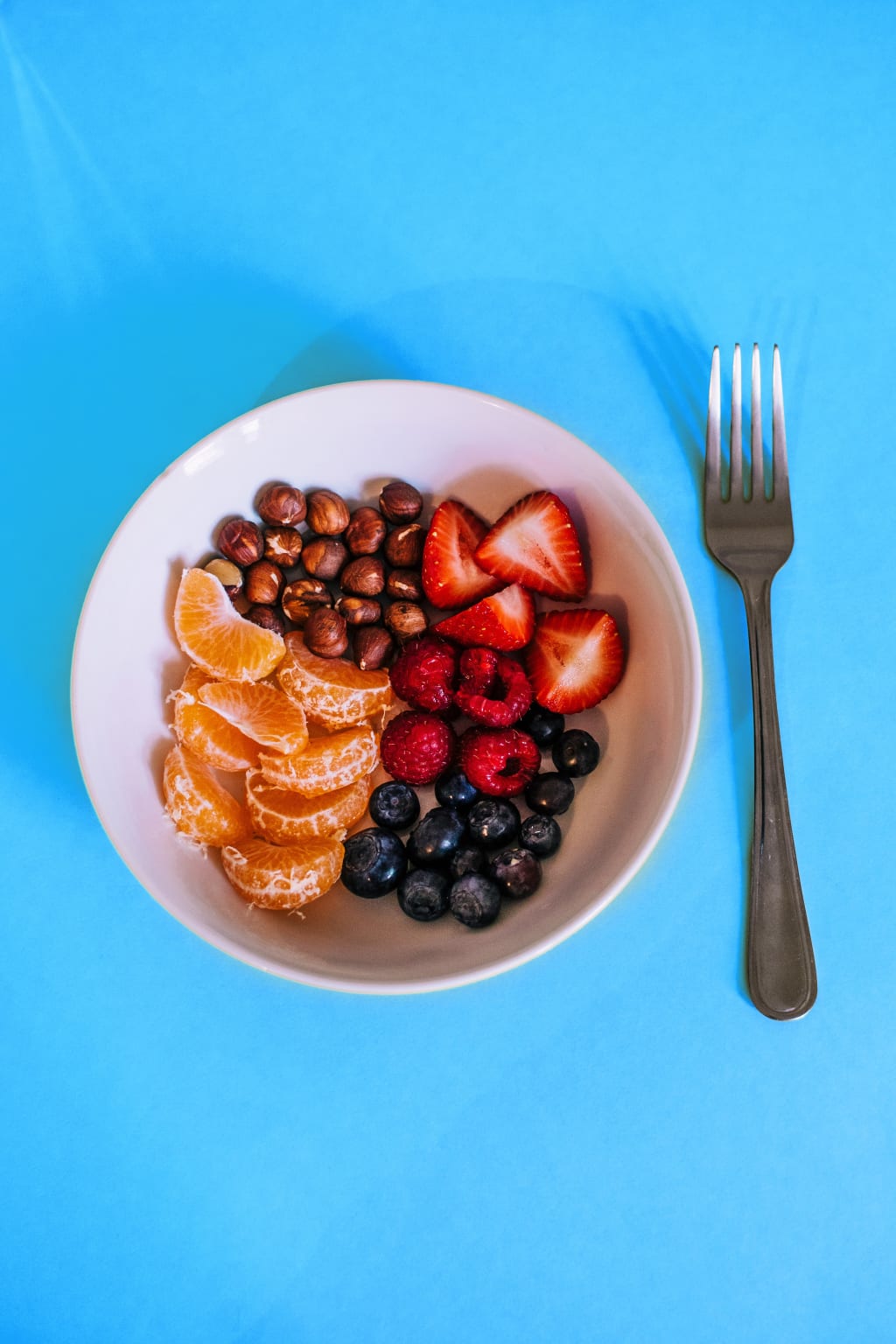
Welcome to the wild and wacky world of healthy snacking! We all know that snacking can be a real bear, but don't be a scaredy-cat, because I am here to help you navigate the jungle of snacks. Whether you're a chipmunk or a gorilla, I have got something for everyone. So, grab your favorite banana, and let's get started!
Snacking can be a real hoot, but it's important to make sure you're not chomping on too many unhealthy treats. Otherwise, you might end up feeling like a bloated whale. That's why it's important to snack on foods high in vitamins, minerals, and fiber. These snacks will give you the energy you need to tackle the day like a pro.
Let's be real here, we all love to indulge in a little junk food from time to time. But, when it comes to snacking, it's important to avoid the usual suspects like potato chips, candy, and sugary drinks. These snacks will leave you feeling sluggish and tired, and you'll end up looking like a plump penguin. So, let's steer clear of these snacks and opt for something a little wilder, like a delicious piece of fruit or a handful of nuts.
Snacks made from whole fruits and vegetables
Apples: A classic snack that's easy to grab and go. Just be sure to brush your teeth after eating, or you'll end up with a smile as brown as a banana.
Carrots: These little snacks are like eating a ray of sunshine. They're sweet, crunchy, and packed with vitamins and minerals. Just don't eat too many, or you'll turn orange like a pumpkin.
Celery: This snack is like eating a crunchy stalk of grass but in a good way. It's low in calories and high in fiber, so you can munch away without feeling guilty.
Berries: These little gems are like nature's candy. They're sweet, juicy, and packed with antioxidants. Just be careful, or you'll end up with berry juice all over your face.
Grapes: These little balls of sweetness are perfect for popping in your mouth. Just be sure to spit out the seeds, or you'll end up with a mouth full of grape-flavored gravel.
Benefits:
Low in calories: These snacks are perfect for those watching their calorie intake. You can munch away without feeling guilty.
High in fiber: These snacks are packed with fiber, which helps keep you feeling full and satisfied.
Vitamins.
Nuts and Seeds
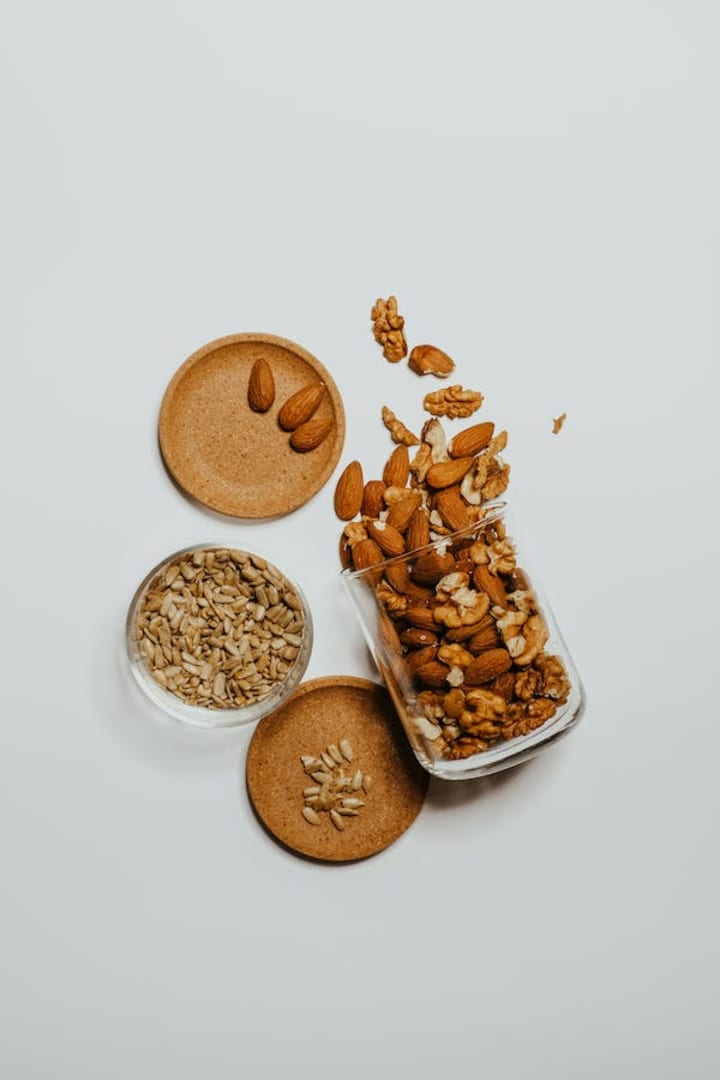
Almonds: These little powerhouses are packed with protein, healthy fats, and fiber. Just be sure to watch your portion size, or you'll end up looking like a chipmunk with a cheek full of nuts.
Walnuts: These brain-shaped nuts are not only good for your brain, but also for your heart. They're packed with omega-3 fatty acids and antioxidants.
Sunflower seeds: These little seeds are like a ray of sunshine in a snack form. They're packed with vitamins, minerals, and healthy fats. Just be sure to spit out the shells, or you'll end up with a mouth full of sunflower debris.
Pumpkin seeds: These little green gems are packed with protein, healthy fats, and zinc. They're also a great source of magnesium, which is important for maintaining healthy bones and teeth.
Benefits:
High in protein: These snacks are a great source of protein, which is essential for building and repairing muscle tissue.
Healthy fats: These snacks are packed with healthy fats, which can help with weight management and overall health.
Fiber: These snacks are high in fiber, which helps keep you feeling full and satisfied.
Dairy products
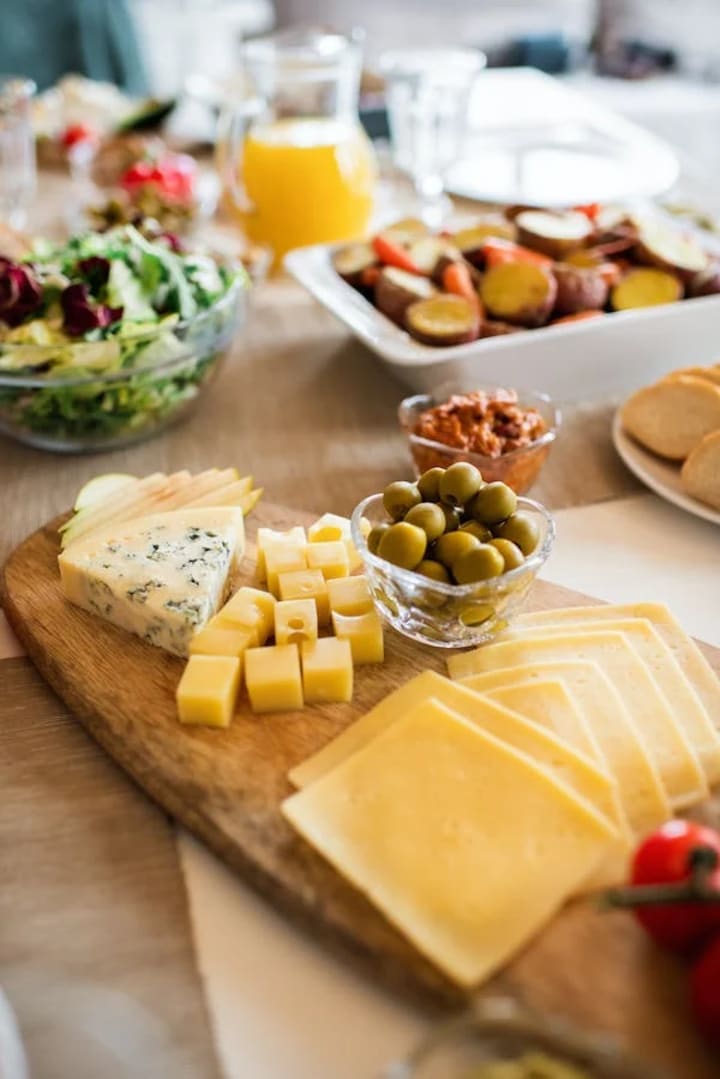
Greek yogurt
Cottage cheese
Hard cheese
Benefits:
High in protein: Dairy products are a great source of protein, which is essential for building and repairing muscle tissue. Greek yogurt, for instance, is a great protein source.
Calcium: Dairy products are high in calcium, which is essential for maintaining strong bones and teeth.
Other essential vitamins and minerals: Dairy products also provide other essential vitamins and minerals such as Vitamin D, Phosphorus, Vitamin B12, Vitamin A, and potassium.
Greek yogurt, low-fat cottage cheese, and hard cheese are good options as they are low in fat and calories.
Whole Grains
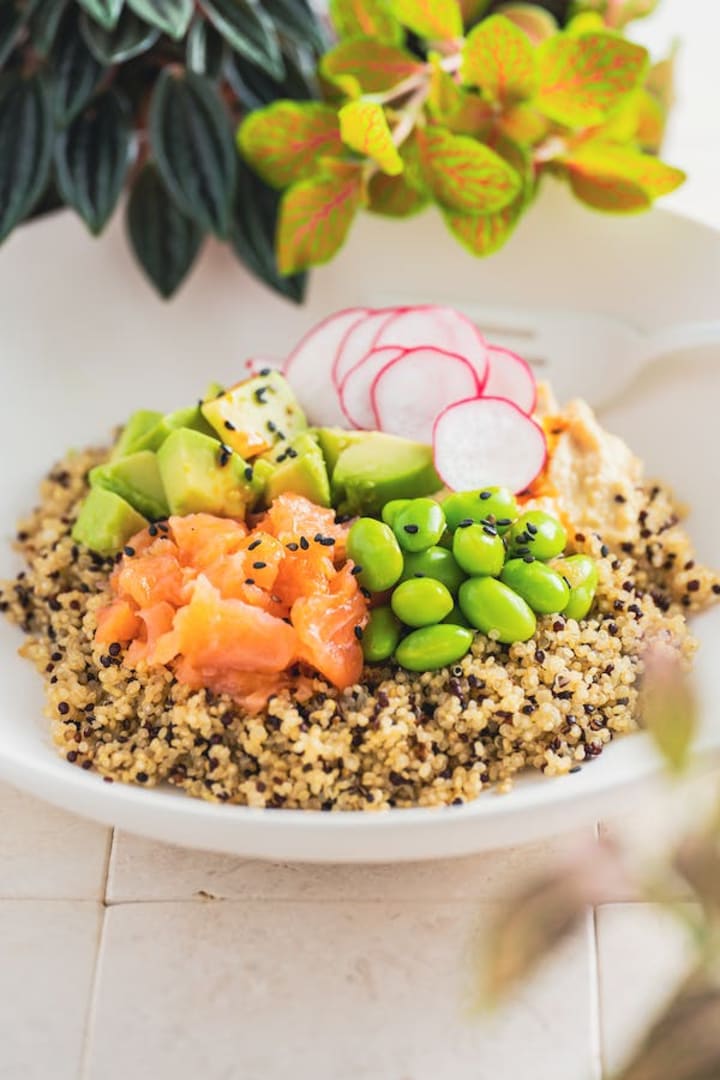
whole-grain crackers
Oatmeal
Quinoa
Benefits:
High in fiber: Whole grains are high in dietary fiber, which helps promote feelings of fullness and can aid in weight management. They also help keep the digestive system healthy by promoting regular bowel movements.
Rich in vitamins and minerals: Whole grains are a good source of vitamins and minerals such as B vitamins, iron, magnesium, and selenium.
Reduced risk of chronic diseases: Consuming whole grains can help reduce the risk of chronic diseases such as heart disease, type 2 diabetes, and certain types of cancer.
Slow digestion: Whole grains are digested slowly, which can help control blood sugar levels and keep you feeling full for longer periods of time.
Legumes
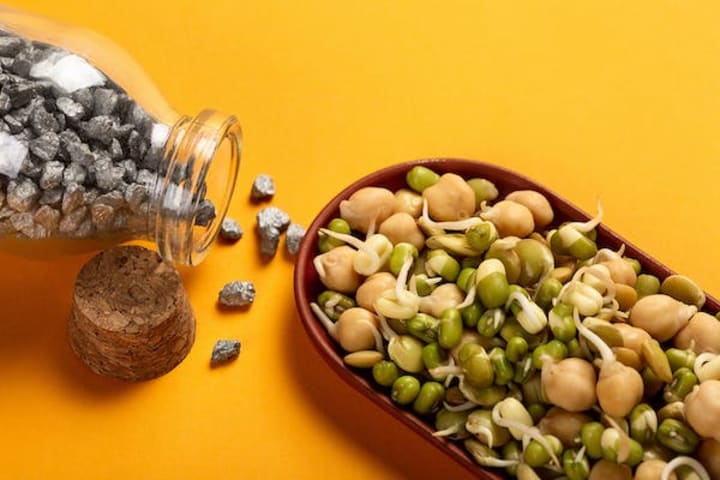
Hummus
Bean dips
Lentils
Chickpeas
Benefits:
High in protein: Legumes are a great plant-based source of protein, which is essential for building and repairing muscle tissue.
High in fiber: Legumes are high in dietary fiber, which helps promote feelings of fullness and can aid in weight management. They also help keep the digestive system healthy by promoting regular bowel movements.
Rich in important vitamins and minerals: Legumes are a good source of vitamins and minerals such as folate, potassium, iron, and zinc.
Low in fat and calories: Legumes are low in fat and calories, making them a great option for those trying to manage their weight.
Low Glycemic Index: Legumes have a low glycemic index, which means they are digested slowly and can help keep blood sugar levels stable.
Healthy Fats
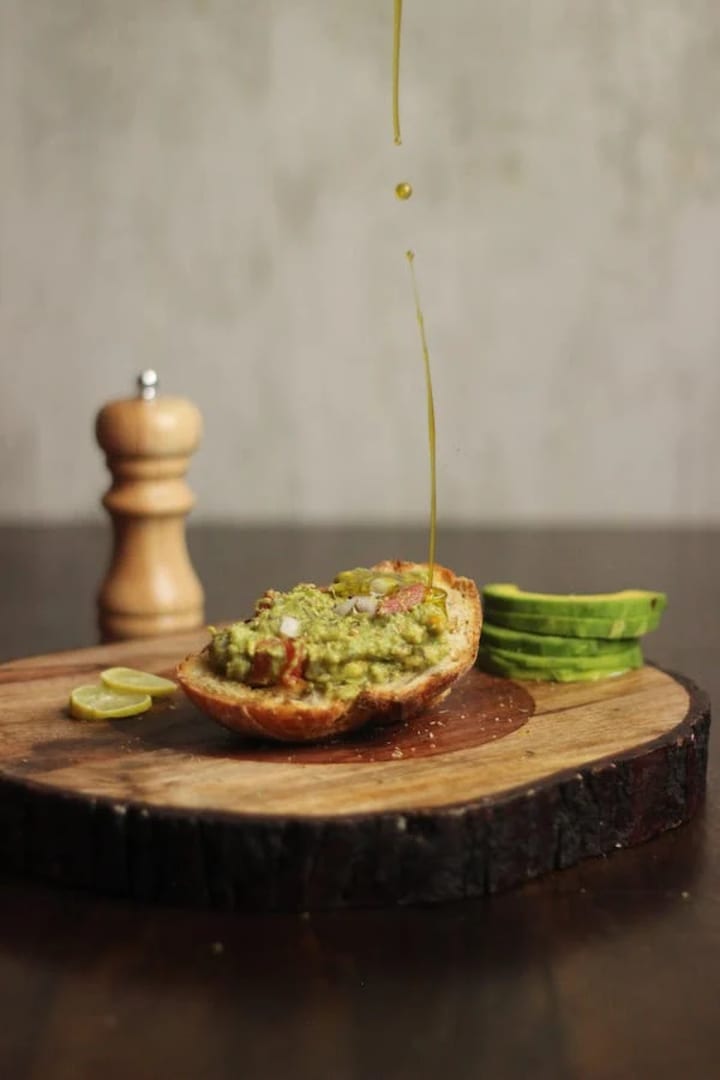
Avocado: This fruit is not only delicious but also packed with healthy monounsaturated fats. It's also a great source of potassium, folate, and vitamin K.
Olives: These little fruits are packed with healthy monounsaturated fats and antioxidants. They're also a good source of iron and vitamin E.
Olive oil: This oil is a staple in Mediterranean cuisine and is a great source of monounsaturated fats. It's also a good source of vitamin E and antioxidants.
Coconut oil: This oil is high in saturated fats, but it's important to note that these are healthy medium-chain saturated fats. It's also a good source of lauric acid, which has anti-inflammatory properties.
Nuts and seeds: Nuts and seeds are great sources of healthy fats, protein, and fiber. Examples include almonds, walnuts, sunflower seeds, and pumpkin seeds.
Benefits:
Weight management: Consuming healthy fats can help with weight management as they help keep you feeling full and satisfied, which can lead to eating less overall.
Heart health: Healthy fats such as monounsaturated fats (found in olive oil and avocados) and polyunsaturated fats (found in nuts and seeds) can help lower bad cholesterol levels and reduce the risk of heart disease.
Brain health: Healthy fats are important for maintaining brain health and function. They help with the absorption of fat-soluble vitamins and minerals, and they also help protect the brain from inflammation.
Satiety: Healthy fats can help with satiety and keep you feeling full for longer periods of time.
Low-Inflammatory: Healthy fats such as olive oil, avocado, nuts, and seeds contain anti-inflammatory properties which can help with reducing inflammation in the body.
About the Creator
Nova
As an article writer and poet, I am excited to share my knowledge and creativity with the world. I bring accuracy and attention to detail to my writing, thoroughly researching topics for my articles and pouring my emotions into my poems.






Comments
Nova is not accepting comments at the moment
Want to show your support? Send them a one-off tip.